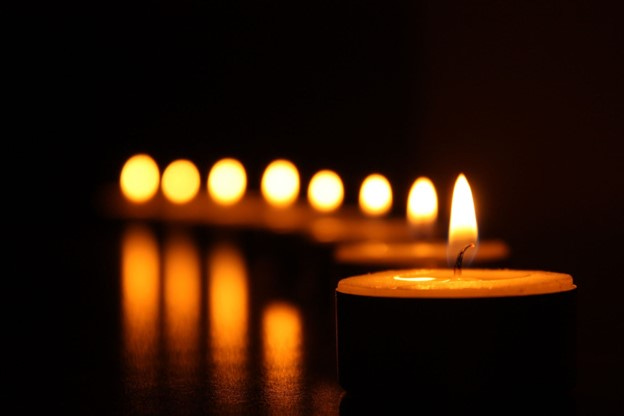New Year's Eve 1942
We are entering the weeks and months wherein we commemorate the work, arrests, and deaths of White Rose students. But February 1943 had its roots in New Year's Eve 1942 and decisions they made then.
Less than two months before the friendships known as White Rose came to an abrupt end, the students stepped up their efforts. They had traveled to Chemnitz, Aachen, Stuttgart, an Austrian monastery, Vienna, and points unknown, recruiting collaborators to join their work in 1943.
But at the end of 1942, most of these students were ensconced in the warmth of home and family. Their letters speak to the introspection of late December, as they took a hard look at their work from the summer of 1942 and considered how they could improve it in the new year.
Christoph Probst wrote his sister Angelika a letter, encouraging her to move past her fear. “A little piece of worthwhile advice: Continue to live inwardly as though nothing were wrong! Could a bomb have fallen long ago in Marienau? Couldn’t we have long since been dead? There is only one difference: Hope ever more, and trust.”
Lilo Berndl nee Ramdohr joined Falk Harnack and his family in Neckargmünd, grieving with them over the execution of Arvid Harnack, worrying about the fate of Mildred Harnack nee Fish. Lilo remembered “Muhmi” Harnack’s gracious words. “What kind of poor souls are they who must carry out such a death sentence?” Her willingness to forgive astounded Lilo.
Hans Hirzel vacillated between positions. When he thought about the unfair treatment his family had received at the hands of Nazi justice (a court had ruled in favor of a tenant they wished to evict), he jumped on the White Rose bandwagon. Then he listened to Nazi propaganda and believed that once Germany had won the war, all the restrictions that annoyed him would be lifted. “One must sacrifice the present for the future” was a Nazi slogan that appealed to him. Hans Hirzel therefore spent the end of the year trying to sort through competing emotions and political philosophies.
That young man’s contemplations led him to seriously consider suicide as an acceptable option for the despair he knew.
Hans Scholl ended 1942 with a heated argument with his father “about thoughts of the future”. Inge Scholl noted that Sophie Scholl was “there but not there” on New Year’s Eve, rocking back and forth as if she were fervently praying, with her hands folded, keeping time to Bach’s music streaming from the radio. When Hans and Sophie retired to the guest bedroom in an upstairs apartment, they debated Leibniz’s theodicy late into the night. Hans blithely accepted Professor Kurt Huber’s interpretation of Leibniz’s perception of good and evil, while Sophie shot holes in his arguments. If God could do anything he wanted, she asked, why couldn’t he do something evil if he so chose?
Willi Graf spent December 30 thumbing his nose at the Catholic hierarchy. He and his closest friends headed for St. Agatha's in Merchingen for a private conversation. L’Osservatore Romano had condemned St. Agatha’s choice of artwork, calling it pictorial blasphemy. What the Vatican deemed heresy, Willi and his friends deemed the sort of reform their church needed, liturgical reform and reform of basic attitudes.
“Several sensible things were said. We understand one another.” Willi wrote those words in his diary after Rudi Alt openly committed to joining White Rose work that day at St. Agatha’s. Rudi bolstered stories of his war wounds (he had lost an arm and shattered a knee) with photographs he had taken in the Balkans and Russia, at once re-opening Willi Graf's emotional wounds and nightmares, while encouraging him to continue his resistance. Rudi pointed out that his wounds placed him in a “privileged position” that they could use to their advantage.
Over the next six weeks, these students took their resolve to unimaginable heights. For fifty days, they lived with but one purpose - to change Germany, to convince their fellow students to join them in rising up to overthrow Hitler. They slept little, they occasionally ditched classes. They worked through the night. They devoted their total energy to standing up for truth and justice, writing words noble and strong.
When they looked back on New Year’s Eve 1942, they had no regrets. They had known what their resolutions would cost them. And yet they chose to act.




